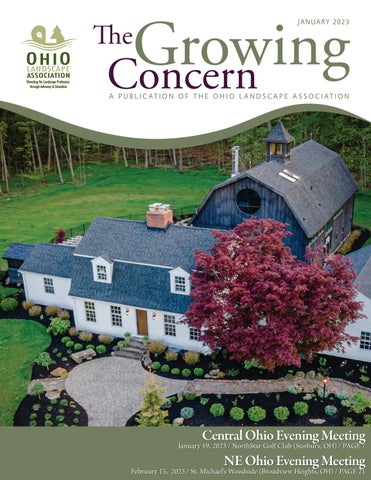Is The Count Of Monte Cristo Still Relevant Today? A Critical Analysis

Table of Contents
Themes of Revenge and Justice in a Modern Context
Dumas masterfully portrays the complexities of revenge in The Count of Monte Cristo. Edmond Dantès's quest for retribution, while initially satisfying for the reader, is far from simple. His actions raise profound ethical questions. Is revenge ever truly justified? Does it bring lasting peace or only perpetuate a cycle of violence? These questions resonate deeply with contemporary issues.
The novel's exploration of justice, or the lack thereof, mirrors our modern struggles with social inequality and the often-flawed justice system. Edmond's journey highlights the frustration and disillusionment felt when legitimate avenues for redress fail. This resonates powerfully in a world still grappling with systemic injustices.
- Examples of modern-day parallels to Edmond's quest for revenge:
- The rise of vigilante justice, often fueled by a perceived failure of the legal system.
- High-profile corporate scandals where powerful individuals escape meaningful consequences.
- Political corruption where perpetrators evade accountability, mirroring the machinations of Fernand Mondego and Danglars.
The Power of Perseverance and Resilience
Edmond Dantès's journey is not merely a tale of revenge; it's a testament to the human spirit's incredible capacity for resilience and perseverance. Imprisoned unjustly, he endures unimaginable hardship yet emerges transformed, a testament to his unwavering spirit. He uses his time in prison not for self-pity, but for self-improvement, mastering skills and knowledge that will ultimately serve his grand plan.
This theme of perseverance resonates deeply in our modern world, where individuals face countless challenges – from economic hardship to personal setbacks. Edmond's example offers a powerful message of hope and the transformative power of self-belief.
- Examples of modern-day figures who embody perseverance and resilience:
- Individuals overcoming significant disabilities to achieve their goals.
- Entrepreneurs who persevere through numerous failures to achieve success.
- Activists who fight for social justice despite facing significant opposition.
Social Commentary and its Continuing Relevance
The Count of Monte Cristo is more than just an adventure story; it's a sharp social commentary. Dumas exposes the pervasive corruption, class inequality, and betrayal that characterized 19th-century French society. Remarkably, these themes remain strikingly relevant today.
The novel serves as a cautionary tale about the dangers of unchecked power and social injustice. The manipulation, betrayal, and abuse of power depicted are timeless, echoing in contemporary events. The vast economic disparity between the wealthy elite and the struggling masses, a key theme in the novel, continues to be a pressing concern globally.
- Specific examples of social injustices depicted in the novel and their modern counterparts:
- Political manipulation and the use of misinformation to control the narrative – mirroring modern political campaigns and propaganda.
- Economic disparity and the struggle of the working class – a continuing global challenge.
- Abuse of power by those in positions of authority – evident in various contemporary scandals and abuses of office.
The Enduring Appeal of the Classic Narrative
The enduring appeal of The Count of Monte Cristo lies not only in its powerful themes but also in its masterful storytelling. The thrilling adventure, intricate plot twists, and compelling characters create an immersive reading experience that continues to captivate audiences. The suspense, interwoven with moments of romance and betrayal, keeps readers hooked from beginning to end.
The novel's enduring popularity is reflected in the numerous adaptations and retellings across various media. This testifies to its timeless appeal and its ability to resonate with different generations and cultures.
- Examples of modern adaptations and retellings of the story:
- Numerous film and television adaptations, often reimagining the story in different settings.
- Stage productions that bring the classic tale to life.
- Modern retellings that explore the themes in contemporary contexts.
Conclusion: The Count of Monte Cristo – A Timeless Masterpiece
In conclusion, The Count of Monte Cristo, despite its 19th-century setting, remains strikingly relevant today. Its exploration of timeless themes – revenge, justice, perseverance, and social injustice – continues to resonate with modern audiences. The novel's masterful storytelling and enduring characters ensure its place as a literary classic. Rediscover the timeless power of The Count of Monte Cristo and explore its enduring relevance to understand human nature and the persistent challenges of our own time. Explore the enduring relevance of The Count of Monte Cristo today – you won't be disappointed.

Featured Posts
-
 Kivinin Kabugunu Yemek Guevenli Mi Ayrintili Bilgi Ve Oeneriler
May 04, 2025
Kivinin Kabugunu Yemek Guevenli Mi Ayrintili Bilgi Ve Oeneriler
May 04, 2025 -
 Are La Landlords Price Gouging After Recent Fires A Star Weighs In
May 04, 2025
Are La Landlords Price Gouging After Recent Fires A Star Weighs In
May 04, 2025 -
 Defense Francaise Opacite Et Absence De Debat Public Denoncees
May 04, 2025
Defense Francaise Opacite Et Absence De Debat Public Denoncees
May 04, 2025 -
 Tynnas Voice A Growing Concern For Germany Before Eurovision
May 04, 2025
Tynnas Voice A Growing Concern For Germany Before Eurovision
May 04, 2025 -
 Optimalkan Cangkang Telur Manfaatnya Bagi Pertumbuhan Tanaman Dan Kesehatan Hewan
May 04, 2025
Optimalkan Cangkang Telur Manfaatnya Bagi Pertumbuhan Tanaman Dan Kesehatan Hewan
May 04, 2025
